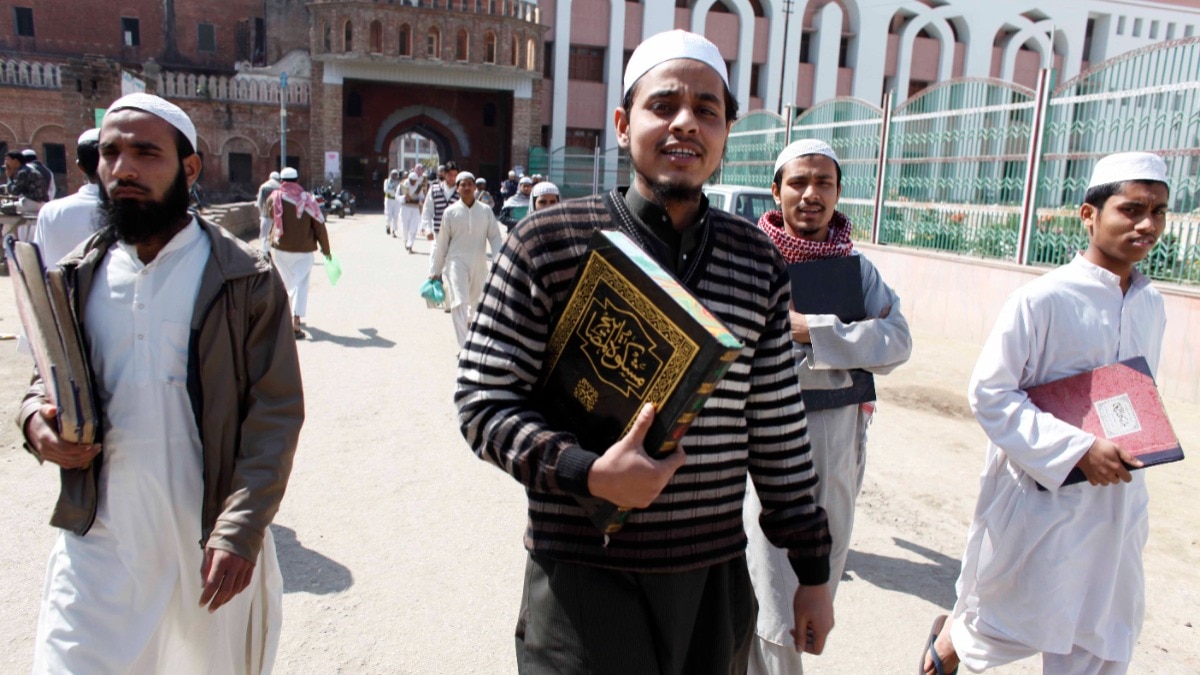Darul Uloom Deoband, located in Saharanpur district of Uttar Pradesh, is one of the most famous Islamic educational institutions in the world. This madrasa, established in 1866, is still considered the center of Islamic education, tradition and morality. Recently, when Afghanistan’s Foreign Minister and Taliban leader Amir Khan Muttaki visited Deoband, this institution came into limelight.
Muttaki offered prayers here, met clerics and visited India-afghanistan Commenting on the relations, he said that Deoband is a major center of the Islamic world and has deep relations with Afghanistan.
But the question is, how is education in the madrassas of Deoband? Is only religious education given here or modern subjects are also included? Let us know-
According to the official website of Deoband, Darul Uloom was established in 1866 during the British rule with the aim of providing religious and moral education to the Muslim community. The basic basis of education here is Dars-e-Nizami, which is a traditional and ancient curriculum of Islamic education. In this course, students are given in-depth study of Arabic, Persian, Urdu and Islamic scriptures. This is the same course which has been adopted today in thousands of madrasas in South Asia.
Quran and language education
According to Deoband’s website, education starts with the Quran. First of all, children are taught to read Nazirah i.e. Quran with correct pronunciation and then Hifz i.e. to memorize it. Along with this, they are given basic education in Urdu, Arabic and Persian languages. This is the foundation on which the entire further religious education rests. This level is called ‘Mutavassita’. Students are taught the basics of Islam – Namaz, Roza, Zakat, Islamic history and moral conduct.
Study of Arabic, Hadith and Fiqh
As students advance, they are taught Arabic grammar (Nahw and Sarf), Quranic exegesis (Tafsir), Hadith and Fiqh (Islamic law). Many reports state that Dars-e-Nizami curriculum of Darul Uloom has been adopted as standard in almost every major madrassa in South Asia. Students are also taught logic (mantik), philosophy (falsafa) and usul-ul-fiqh (principles of Islamic law), so that they can understand Islamic texts analytically.
Higher level: expertise and research
At the higher level of Deoband, students choose various courses for special studies. According to the website of Deoband, many major ‘Takhassus’ i.e. specialization courses are run here, such as-
takhassus fil hadith– In-depth study of major books of Hadith like Bukhari, Muslim etc.
Takmeel Ifta – Expertise in Islamic law and fatwa writing.
Takhassus Phil Adab-Mastery in Arabic language and literature.
takmeel tafseer – In-depth study of the interpretation of the Quran.
After completing these courses, students are given the title of ‘Alim’ (Islamic scholar). Those who further study in ‘Ifta’, they become ‘Mufti’ i.e. persons who have the right to give religious decisions (fatwa).
limited inclusion of modern education
Although Deoband follows the traditional education system, with time some modern subjects have also been included here.
According to Deoband’s website, now courses like Journalism, Computer Applications, English Language, and Comparative Religion are also taught there. Apart from this, teacher training courses are also conducted, so that students can do teaching work in future.
However, Deoband spokesperson Maulana Arshad Madani had said in a conversation with The Indian Express that madrassas do not take any kind of help from the government, so that there is no government interference in religious education. He also said that the objective of Deoband is not to prepare engineers or scientists, but to prepare religious scholars and guides of the society.
Final Stage: ‘Daur-e-Hadith Sharif’
The most prestigious and last course of Darul Uloom is called ‘Daur-e-Hadith Sharif’. In this, students study in depth the six major Hadith books of Islam – Sahih Bukhari, Sahih Muslim, Abu Dawood, Tirmidhi, Nasai and Ibn Majah. After this course, students are given the degree of ‘Alim’, which is considered respectable in the Islamic world.
—- End —-
